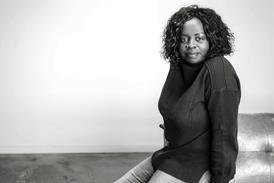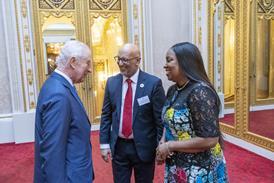- Hot topics
- Join Now!
Christians need to get better at saying 'no' - and it's not selfish
By  Natalie Baird-Clarke2023-04-26T07:30:00
Natalie Baird-Clarke2023-04-26T07:30:00

Source: Unsplash / Daniel Herron
Writer Natalie Baird-Clarke explains that, even though Christians are terrible at saying "no", we need to learn to care for ourselves.
According to Wikipedia’s top 100 most commonly used words in the English language, the word “no” comes in at number 56. I’d say that makes it pretty common. That’s why it’s interesting to note that, for a lot of Christians, the word is a difficult one to say.
It wasn’t always this way of course. Toddlers, infamously, have no problems with saying no. In fact, they may say it over and over again, as they delight in realising that they are their own little person with their own thoughts and feelings! Checking boundaries allows them to start to navigate the world around them. And importantly, it helps them learn how to set their own boundaries for when they’re older.
To continue reading, register today for more access!
If you are a member or a registered user, or if you already have a login for another Premier website SIGN IN HERE

Sign up for your free account now!
Registering is quick and easy and gives you immediate access to read more articles, plus:
- You’ll receive a weekly newsletter every Saturday with the top stories of the week
- You can save articles to read later
- You can share your comments and thoughts on the stories
Or become a member today for unlimited access! Special offers are available!
If you already have an account with a Premier website SIGN IN HERE
Related articles
-
 Article
ArticleTime to stop mourning the person you used to be
2025-04-30T08:22:00Z By Dr Becky Howie
Dr Becky Howie recognises that there is a natural tendency to compare ourselves to what we were like when younger. Here she provides some strategies from positive psychology, which reflect biblical wisdom, to help combat comparison culture and maintain a healthy mindset
-
 Article
ArticleHow is your Church responding to the loneliness epidemic?
2025-04-30T08:22:00Z By Danielle Finch
Danielle Finch shares sobering statistics with a challenge to recognise that God calls all of us to look out for and care for our fellow human beings
-
 Opinion
OpinionWhy your body size matters to God
2025-04-15T05:00:00Z By Hannah Wickins
‘I practice self-love by standing in front of the mirror, looking at my body (a recent revelation) and telling my body how much I am grateful for it and then thanking God for it, honouring his creation,’ says Hannah Wickens.
More from Opinion
-
 Opinion
OpinionWhat is the “true purpose” of marriage for Christians?
2025-04-30T05:52:00Z By Suze Gurmeseva
‘Jesus never forced anyone to follow him, yet his unwavering love transformed lives (Luke 22:42, Galatians 5:22–23). You can’t control your husband. But you can let the Holy Spirit shape your own heart and responses,’ says Suze Gurmeseva.
-
 Opinion
Opinion‘God carried me when I was told I needed to terminate my pregnancy’
2025-04-30T05:47:00Z By Beth Appleby
‘At a routine check up on the baby, a few days before our planned C-section, her heart rate kept disappearing. Distressed this was the end, I agreed whole-heartedly to an emergency C-section as our church community prayed fervently over Zoom,’ says Beth Appleby.
-
 Opinion
OpinionFaith is not the only thing I have in common with world famous actress, Olivia Colman
2025-04-29T05:38:00Z By Jemimah Wright
‘If I ever meet Olivia Colman (one can dream) I would love to chat to her about school, and our experiences of drama classes with Mr Hands, but I would also ask her about her faith, and encourage her that the God she worshipped in chapel choir at school, is the same God who wants a close walk with her today, and to bless her even more than she knows,’ says Jemimah Wright.
- Issues
- Topics A-Z
- Writers A-Z
- © 2025 Woman Alive
Site powered by Webvision Cloud






















